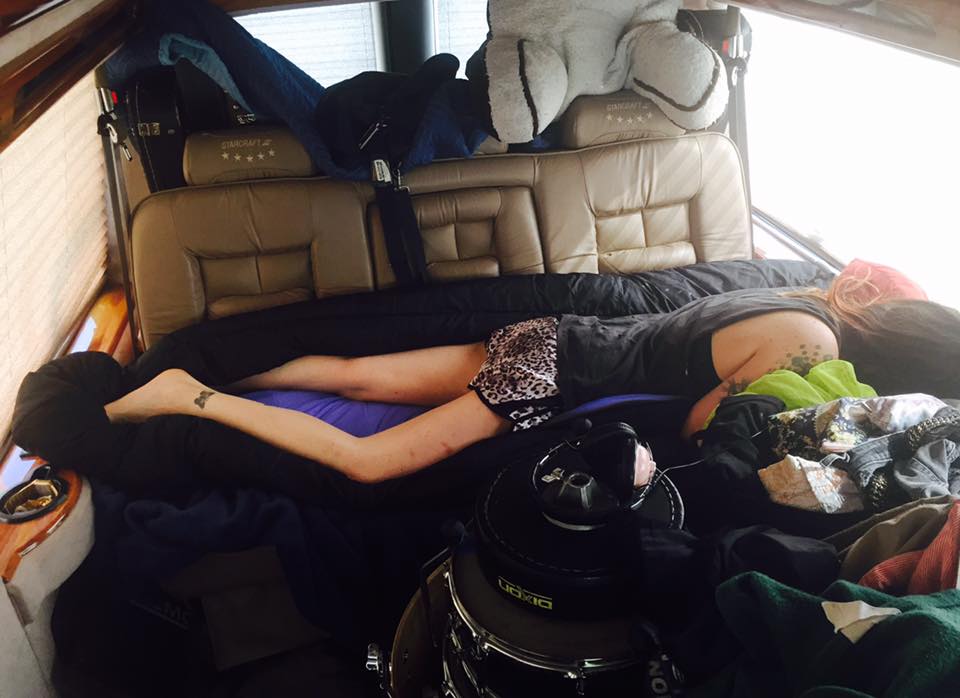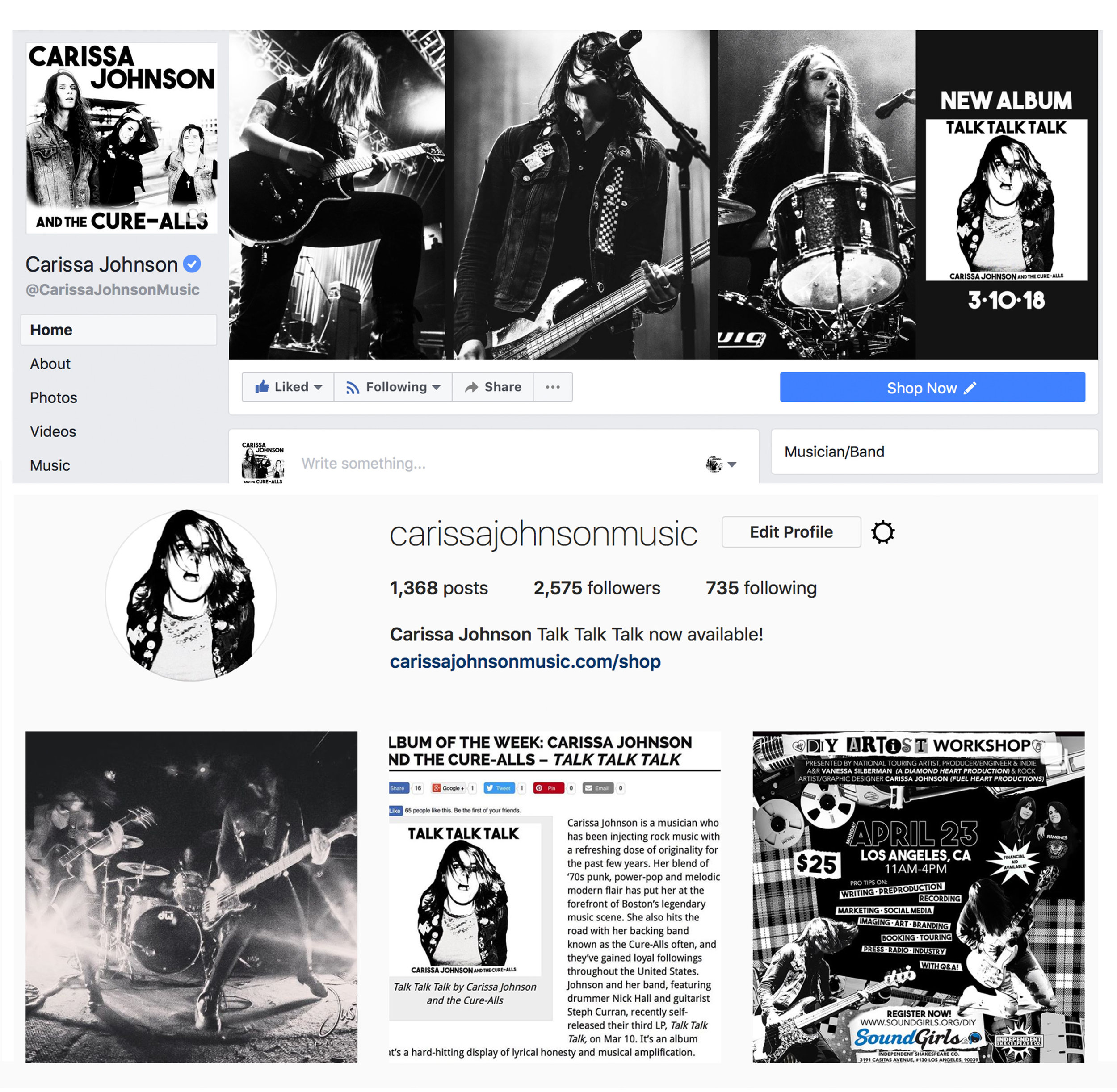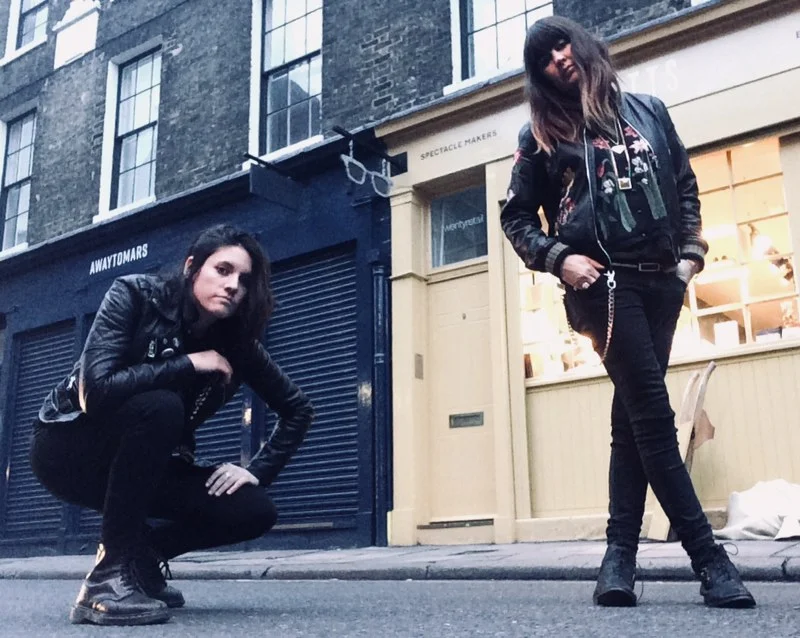When you first go to plan the routing of a tour, it is important to take these factors into consideration and to first ask yourself a few questions to define the tour.
What is the purpose of the tour?
Are you releasing new music? Did you just release a single or record and want to support the new release? Are you playing a great festival or show in the middle of the country or in a big city that’s great exposure and great pay? It might make sense to turn the trip into a tour instead of flying there. Are you just looking to expand and play regionally as well as gain new fans? Or are you just looking to play and get paid gigs? Whatever it is, try and define that first with your band so when it comes to finding venues and cities you are looking in the right place!
(Photo: Jenny Bergman)
What vehicle are you using and how long is your tour?
Is your car or van in good enough shape to take you where you need to go? Is a rental a better option? And if it is, is it in your budget? Sometimes when you’re first starting out touring it might be best to consider just getting your feet wet with a few week-long runs with your band before diving into a full few weeks or month. That way you can build up to something bigger and you won’t go out of pocket too much if you’re just figuring things out! No matter how long you are going out on the road for, make sure that your car has passed inspection and that you can rely on it to get you where you need to go safely!
What is your target market?
Once some of your goals are defined, decide who you are playing for. Which cities do you think your music will go over well and where do you want to start to build a fanbase?
Music scenes all over the U.S. grow and change on a regular basis, but it’s important to keep in mind which part of the country you’ll be playing to and what type of music is mostly focused on in an area or venue. It will vary all over, but you can research the cities you’d like to play in and see what’s going on at the local music venues through the venues’ facebook page calendars or websites. You could also look up bands or artists you feel are similar to you and see the venues they play. Also consider asking other friends’ bands or artists who tour what experiences they have had.
*Make sure that if you’re focused on playing a specific bigger city that you aim to play there on a Friday or Saturday night as these are the peak show times! Try to keep larger cities on the weekends and the smaller towns in between.
*TIP: http://indieonthemove.com is a fantastic database of venues by city and state. You can also define the search by seeing the music genres that the venues host.
What is your budget and have you set a target amount that you will be getting paid or making per show?
Sometimes when you’re first starting out, you won’t get a guarantee from the venue. In some cases you will have to play a market a few times, and show consistent promotion for a door cut, bar %, or tips to gain fans. At times you will have to rely on merch sales when you are starting out! This can be such a great savior! Your two CDs and three t-shirts sold will pay for gas and food in a new place. Sometimes coffeehouses, bars, restaurants, and breweries will pay more and give bigger guarantees than a venue in a big city. The smaller town markets between the bigger cities can sometimes be overlooked, but will often host music, be a perfect stop in between two major cities, and can really help bring in larger amounts of money than a show in the big well-known cities would. This is often because they may have a budget for giving artists a guarantee or a good bar %, and you won’t be relying on bringing in fans for a cut of the door.
When you’re first starting to tour, it’s good to establish the worth of your performance. How much do you get on a regular basis when playing your hometown? How many people are in the band and how much will you need to get to the next city? It’s important not to undersell yourself but not to charge too much either. If you are new to a market, just know you will have to play the city a few times to help establish. Consider it an investment if you plan to tour a lot. If you’re basically beginning in a new place and can coordinate with the booker, always ask and see what they can offer you as far as a bar %, door %, guarantee, food/drinks, lodgings, etc. Often venues will feed touring artists too! So always check.
(photo: kribbean at 'Roll & Roll Hotel' via TripAdvisor)
Will you be staying with friends/family or at hotels?
If you are traveling to a place where you have friends or family, see if it’s possible for you or your band to crash with them for a night. More likely than not, they’ll be excited you’re in town and will want to come see the show and let you crash if they have the space. Offer them some merch or a guest list spot in return! If you’re staying at hotels, a lot of them offer deals and express deals through http://Priceline.com. It’s possible to get a motel or a hotel for as cheap as $25 a night in some cities!
(Photo: Vanessa Silberman on tour with Jimmy Dias of The Love Dimension)
What is the distance between cities/states you are traveling?
It is helpful to look on a map when routing a tour, and to keep in mind the lengths of your drives and the distances between your shows.
*TIP: find out who in your band will be sharing the driving duties and calculate how many hours the band can do on a gig day (ex. 4-5 hours plus gas stops/food breaks/bathroom stops. Also consider cushioning a little time for traffic in bigger cities or any time changes to get you on time for load in and sound check).
It can be a challenge sometimes finding great gigs on weekday nights rather than weekends, but it IS possible!! Many venues around the U.S. book music seven days a week, and some that only book on weekends will sometimes make exceptions for touring artists. The closer you can get to a straight line or a circle without retracing steps and driving extra miles is going to be the most effective way to map out a tour and to make the most profit!
(Photo: Jenny Bergman)
Do you have enough time for preparation and booking?
Make sure you consider starting the planning of a tour 3-6 months prior to the first night of tour. It’s going to take time to align it so it is linear and so you can fill in all the gaps accordingly. If there are any gaps, say on a Monday that you just couldn’t find a venue for, try hitting up a local show and meeting some bands if you’ve got the day off. You could visit some open mics as well as record stores to see if they’ll put your music on consignment.
This site can tell you how much a route will cost in gas and tolls and also how far you’ll travel in miles according to your vehicle. It’s great for figuring out a budget plan and a route! https://tollguru.com/trip-calculator
With just a little bit of planning ahead and time you can route a great tour!










